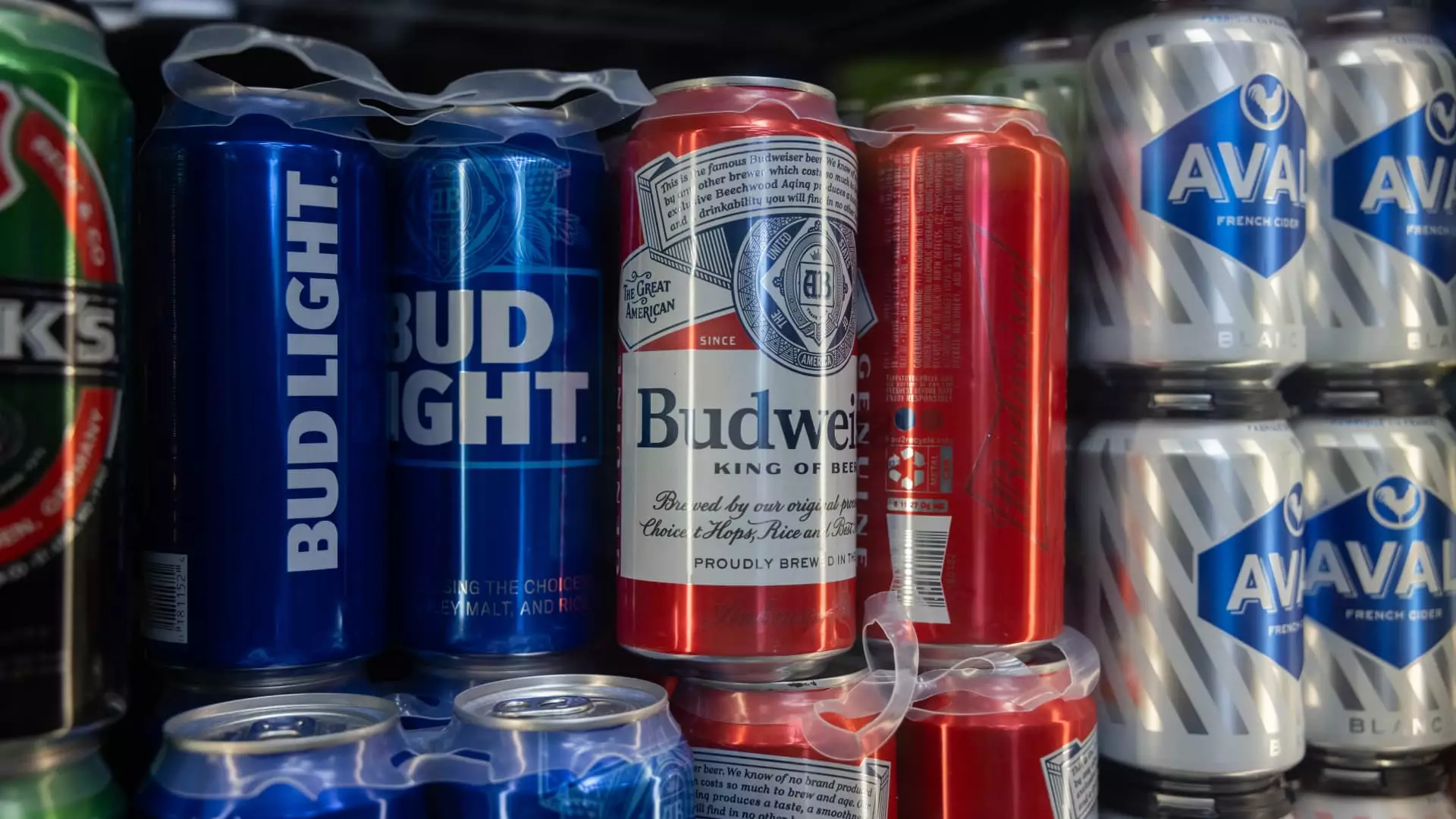AB InBev, the world’s biggest brewer, saw a 2.6% increase in revenue to $14.55 billion in the first quarter, surpassing analyst expectations. Despite a slight decline in volumes sold, the company’s underlying profit attributable to shareholders also rose to $1.5 billion. This positive financial performance can be attributed to the company’s ability to navigate through a year-long boycott of its Bud Light brand, triggered by a social media campaign in response to a sponsorship deal with transgender influencer Dylan Mulvaney.
The boycott led to a 0.6% drop in volumes sold by AB InBev, with a significant 11.1% decrease in sales of the Bud Light brand in North America. While the brand lost its status as the best-selling U.S. beer, it also sparked a debate on the balance between commercial success and social responsibility. The company faced criticism for not fully supporting Mulvaney during the backlash, prompting a reevaluation of its marketing strategies and public image.
AB InBev’s revenue in Europe declined by 2.7%, impacted by a 6.2% drop in sales in China and challenging market conditions related to the country’s reopening post-pandemic. However, the company experienced record-high sales in Brazil and Colombia, showcasing its ability to adapt to diverse market landscapes. Sales in Europe, Mexico, and South Africa also saw steady growth, indicating a resilient global presence for the brewer.
Despite the challenges faced by Bud Light, AB InBev highlighted growth in its Corona brand, particularly in the non-alcoholic beer segment with Corona Cero. The company’s diverse portfolio of brands and products helped offset the impact of the boycott on specific labels, demonstrating the importance of brand diversity and innovation in sustaining long-term growth.
Looking ahead, AB InBev reiterated a medium-term outlook for earnings before interest, taxes, depreciation, and amortization (EBITDA) of 4% to 8%. The company’s CEO, Michel Doukeris, emphasized the resilience of the beer category and the momentum of its megabrands in driving overall growth. Analysts at Barclays described the first-quarter results as a “solid print at the start of the year,” indicating cautious optimism about the company’s future performance.
AB InBev’s ability to weather the storm of a boycott and maintain positive financial results underscores its strategic resilience and adaptability in the face of adversity. The company’s focus on expanding its global footprint, nurturing diverse brands, and responding to market challenges will be crucial in sustaining its position as a leading player in the beverage industry.

Leave a Reply